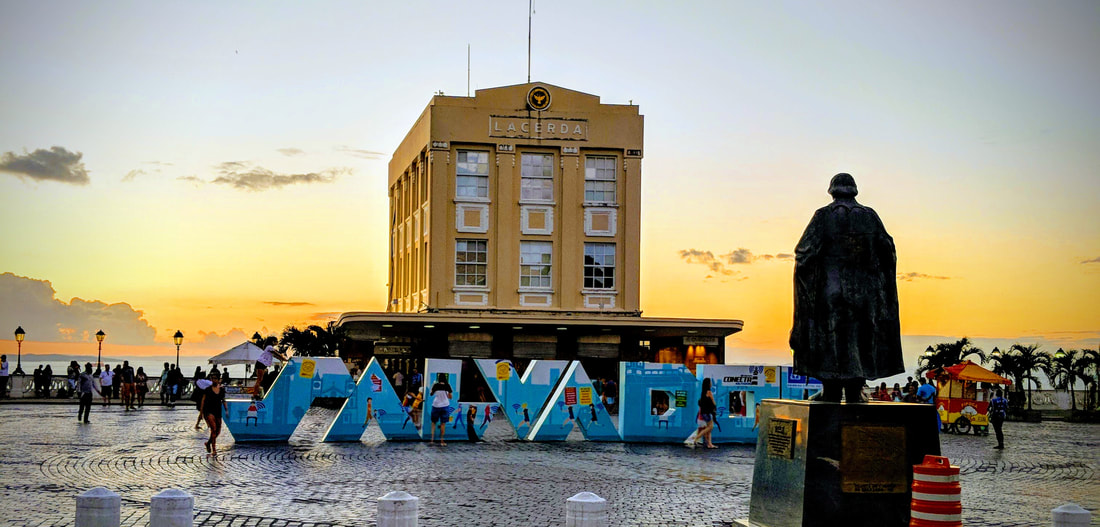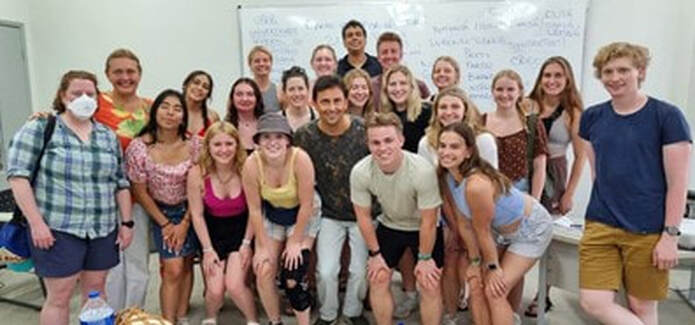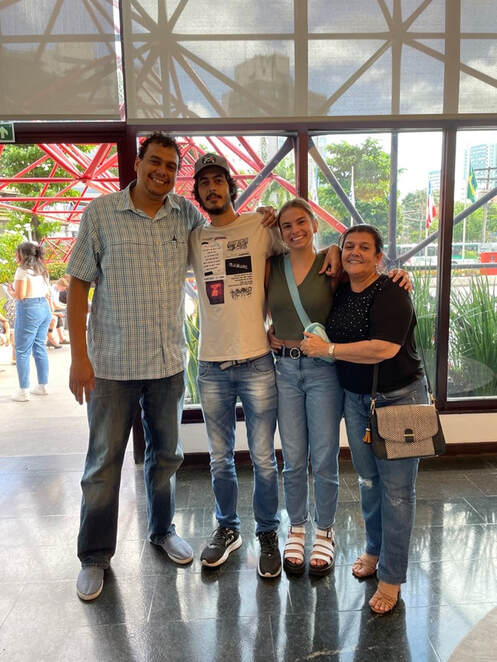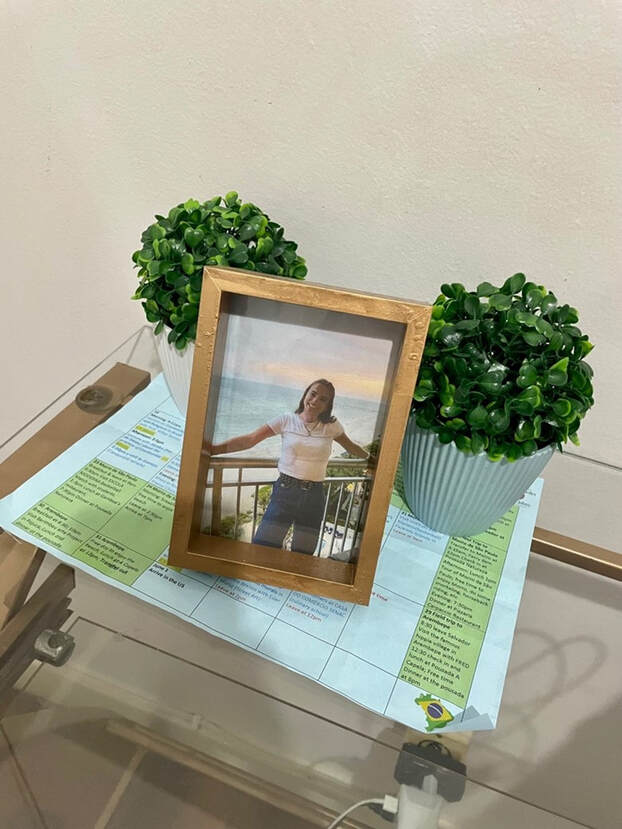|
In April of 2024, Dr. Flavia Biroli visited the CSB and SJU campus to present her research, part of the Global Awareness Lecture Series. Dr. Biroli's research on far-right politics and gender in Brazil is much needed. The study mapped and analyzed the far-right politics on gender during the government of Jair Bolsonaro (2019-2022). The talk will discuss its developments considering two issues: abortion and gender-based violence. Previous research found that the degree of conflict and the actors involved vary according to the issue. Historically, disputes on abortion are contentious and involve religious actors and perspectives. The politicization of violence against women had a distinct trajectory, reaching a broader consensus expressed in legislation and policy. The convergence between conservative religious activism and the far-right affected these dynamics – not only in Brazil or Latin America, as studies on Eastern/Central Europe identify similar displacements. Still, far-right politics activates distinct mechanisms to block feminist politics in these two issues. I discuss these mechanisms, connecting them to the disputes over democratic institutions and values. Based on that, I make the point that there is a tight connection between the struggles over gender and the present and future of liberal democracies. Below is her talk:
0 Comments
Yesterday I had the first meeting with the students who will be joining me in Brazil in May 2023. We start classes in March, but I get way too excited and want to start sharing stuff as soon as I can with students!
This first post is a review of the stuff we did in 2022. To complement the class, I invited various scholars to campus and remotely to help my students understand more about Brazil. Below are the recordings for some of these talks!
Spotlight on Brazil Series - Brazil under US influence: 1964-2021, Xavier Vatin
Spotlight on Brazil Series - Social inequalities in Brazil: Effects and Outcomes in Life and Health Conditions, Clarice Mota
Spotlight on Brazil Series - An Informal Conversation on Racial Issues & Basketball in Brazil, Jamir Garcez
Spotlight on Brazil Series - Fernando Conceição: Violence Against Minorities - Brazil & US, Fernando Costa da Conceição
By Lily Fredericks If you read my last blog post, you know that I was pushing myself to be open to new experiences and interactions, and I am proud to say that I have done this. I also mentioned that I wanted to continue to do this throughout the rest of my time in Brazil. The story I am about to tell definitely demonstrates this, and it lead to an interaction that I never expected, but that I learned a lot from. One night, I was sitting on the balcony of our apartment with my host mom, her grandson Pedro, and my host mom’s son who was visiting. The topic of conversation ranged widely – from sports, to beer, to school. I began talking with Pedro about his experience with Brazil’s education system, and his lived experience confirmed what I have learned thus far, which was cool to hear. He said that the higher education system is unfair in many ways and that it is not accessible for racial minorities. At the Steve Biko Institute, I learned that many black folks come from public high schools which are much worse due to racist societal dynamics and lower income levels, but then the white folks take up the spots at the excellent free public colleges. In 2002, colleges started reserving spots for black folks, but the ENEM exam is the only thing that matters for admission, and blacks are therefore much less prepared for it (Jorge Rivera, 5/19/22). Pedro then asked me if I liked Brazil’s current President, Jair Bolsonaro. I was a bit nervous to answer because I was not sure of his opinion, but I told him based on what I have learned about Bolsonaro and the ways in which his policies have affected the marginalized, I was not a big fan of him. I learned from Xavier Vatin that former president Lula, even though he had some problems as well, gave the youth a higher opportunity to achieve higher education, but Bolsonaro has been and wants to destroy this system and affirmative action (Xavier Vatin, 5/19/22). Pedro quickly agreed and asserted his strong passion against Bolsonaro. He described him as racist and much worse than former U.S. President, Donald Trump, after I said that I saw a lot of parallels between Bolsonaro and Trump. He then told me that my host mom (his grandma) loves Bolsonaro, and so does his mom. I was a bit taken aback by this, especially given what Pedro had just voiced. I thought it was interesting when he said that he was unsure of why his mom liked Bolsonaro because she is young and works in healthcare, but she is also evangelical. This made some sense to me because I learned from Willy Santos that conservatives and Bolsonaro supporters are more likely to be evangelical or Catholic (Willy Santos, 5/16/22). I asked Pedro why my host mom likes the President, in which is responded that he was not sure, but he could ask her for me. I was hesitant for him to do this, but if I have learned anything from studying political science, it is that we need to ask these questions because if we shy away from talking about politics, nothing will be accomplished. Upon asking her, she said firmly that Bolsonaro “is my president and my leader,” as she put her palm on her heart. I could already see a different side to her that I had not seen over the past 2 and a half weeks. I thought that maybe she liked Bolsonaro because she was partly following along with Brazil’s color blind “racial democracy” ideology, in which many citizens do not think there is racism present, or they do not see a problem with what happened in the past (Carillo 2021, pg. 58). Pedro and her son (who is also not fond of Bolsonaro) questioned her and mentioned that I also was not a fan of the president, and she said with disgust, “What? You like Lula? No way.” At this point, I could see tensions were rising, and since I am still learning about politics in Brazil, I chose to say that I was not a big fan of Bolsonaro or Lula. However, this was not enough for her, as I could tell she was not happy. I told Pedro to tell her that I am still learning and that I do not want to offend her, but upon trying to get her attention, she told Pedro that we should be ashamed of ourselves and that she does not want to talk to “our kind of people.” At this point I was shocked and anxious. I thought that now she did not like me anymore and the rest of my time in her house would be very awkward, but I was wrong. After I went and showered an hour later, it was as if this conversation had never happened. She greeted me with her usual “Leelee!” and it seemed that she had not held a grudge, and for this I was grateful. Oftentimes in the U.S., it seems like people hold political grudges for some time and they judge someone else’s entire character based off of how they side politically. However, I was pleased that my host mom did not do this. It shows that even though we do not agree on politics in this case, our personalities can still get along and we can still maintain our bond, and I think there is something to be learned from this. If we refuse to have conversations and interact with people that disagree with us, we will never reach common ground. Despite this difficult interaction, I have created a lovely relationship with my host mom and I know that I will keep in touch with her in the future. The past week in Brazil has been fun, but it has been more anxiety-inducing than the previous week, most likely because reality is hitting, and I am getting a bit run down from all of the constant activities. With this, I have found myself to be feeling more insecure in the big group setting. However, when I come back to my host home, I feel comfortable and at ease, something that I did not feel yet when I returned home at the beginning of the trip. I think this says a lot about the relationship and bond I have developed with my host mom and family – that even in a foreign country, I have found a place that feels more like home at times than when I am with my peers from the U.S. This is not to say that our group is not a wonderful group people, because they are, but I often find it refreshing to come home to people who don’t know my past, don’t know by baggage, and still unconditionally accept and welcome me. Even though I am excited to go back and see my own mom and family in the U.S., this experience will forever be something I cherish. Citations: Carrillo, Ian. “Racialized Organizations and Color-Blind Racial Ideology in Brazil.” Sociology of Race and Ethnicity 7, no. 1 (2020): 56–70. https://doi.org/10.1177/2332649220943223. Jorge Rivera, “Education and Affirmative Action in Brazil,” Steve Biko Institute, 5/20/22. Xavier Vatin, “The African Diaspora in Bahia: A Socio-Anthropological Perspective,” UFRB Cachoeira, 5/19/22. Willy Santos, “Candomblé and Religions in Brazil,” ICR Brasil, 5/16/22.  Lily Fredericks recently graduated from CSB majoring in political science and minoring in environmental studies and psychology. She is originally from Eden Prairie, Minnesota and is interested in law, public policy, and different ways to protect the environment. She likes to play tennis and be outdoors.  This here is a photo I took in Cachoeira. If you look closely, you'll see many underdeveloped houses are located quite close to one another. Although this is how many people live, it highlights the poverty and underdevelopment that people endure. This here is a photo I took in Cachoeira. If you look closely, you'll see many underdeveloped houses are located quite close to one another. Although this is how many people live, it highlights the poverty and underdevelopment that people endure. By Zach Jans and Ryan Engels  This is the start of the roadwork crew. The man on the far right, was the only white man there all day long. He is also the only man that didn’t lift a tool, move the cement, or get dirty at all. By the end of the day, there were approximately 20 men, all doing hard labor, besides the white man in this picture. This is the start of the roadwork crew. The man on the far right, was the only white man there all day long. He is also the only man that didn’t lift a tool, move the cement, or get dirty at all. By the end of the day, there were approximately 20 men, all doing hard labor, besides the white man in this picture. After completing our semester of school, we were finally able to travel abroad to Salvador, BA in Brazil. So far in our stay, we have been learning so much about the culture and lifestyle from lectures, our host parents, and exploring with our class. In this blog, we will connect things we have noticed during our stay with what we learned during class before this trip. In one of our first lectures, we met with Cloves Oliviera, who is a professor at the Federal University of Bahia. Oliviera went over many of the basic facts regarding how schools and universities look and work in Brazil. However, there was one thing that stuck out to us. He mentioned how whites and pardos dominate the population, and that one in four candidates for college “change their color” when registering again for ENEM. He explains that people do this because changing their color identification can benefit different areas of their lives such as the probability of getting into school/college. Clearly, this puts minorities at a disadvantage of pursuing an education due to people changing their race in order to benefit themselves. The following quote connects to this information: “In education, work conditions, legal status, family status, and social freedom, women are making exponential gains, Yet, just as one force seems to move gender roles forward, they are constrained by other forces that want to hold them back” (Baldwin, DeSouza, 2001, 23). The fact that people are getting away with changing their race on paper just shows that minorities, including women, are constantly being held back in some form. This example that Oliviera shared with us supports the quote I read during class back in the US. In our lecture regarding Afro-Brazilian religions, it was mentioned that Bolsonaro did not do a census in 2020 due to the fact that it would show high numbers in poverty and underdevelopment. We found this interesting because it sounds like Bolsonaro is trying to ignore poverty being a big issue. Although this quote relates to a different topic, I think it connects to this information in a way. The quote states that “conservative voters perceive the prevalence of VAW as exaggerated and do not prioritize tackling VAW on the policy agenda” (Araujo, Gatto, 2022, 144). Although this is about Violence Against Women, the key information in this is conservative voters perceiving it as exaggerated and not prioritizing the issue. I think this may be a common theme between both poverty and violence against women, both issues that mainly fall in the category of minorities. While being in Brazil, there have also been situations outside of our true class time that have caught my eye. When reading one of the passages before coming to Brazil, the article wrote, “these differences, as we will discuss, seem to explain some distinctions observed in the perception of youth regarding the weight of race and social class over discrimination and, therefore, over their ability to recognize manifestations of racism in police practice” (Anunciação et al., 2014, 236). When reading this, it made me curious as to what the police presence is like in a large, poverty driven city like Salvador. What I have noticed is that there is a police presence everywhere you look. When we have been walking or driving places, I have tried to keep my eyes open for the police. It is hard to find a time where there isn’t a police officer or police car in sight. This is very unfortunate because whether the police force means for it to be discriminating or not, it seems to be an abuse of power. The intimidation that the police seem to be giving off towards the locals seems to be asking for trouble and seems to end poorly for the locals nearly every time. Another story that comes to mind when thinking about our time in Salvador so far is about the construction that is taking place right outside our host building. One morning, we woke up and there was construction going on right outside the front window of our apartment. I looked at the workers briefly but didn’t pay much attention. When we were waiting for our Uber to show up, I started to look at the workers a little more clearly. There were about 20 men working, one of which was white. This white man was doing all the talking and pointing, but none of the actual work. All of the dirty work was done by the rest of the workers, all of which were either of mixed race or black. When thinking back on the readings we read, I think this quote fits this situation. Silva wrote, “National and international literature shows that, since childhood, men and women have been instructed in male dominance, such as the power of men over women and their subservience without questioning” (Silva, et al., 2020). Instead of women however, it was people of color in this situation. With slavery ending so late in Brazil, you could see that the white male was instructed of his dominance and the people of color did as he instructed. Bibliography Silva, et al. “Social Attributes of the Male That Incite the Violence by Intimate Partner.” REBEn, 73, no. 6 (2020): 1-7. http://dx.doi.org/10.1590/0034-7167-2019-0470 Anunciação, et al. “Hands up!”: Police Stop-and-Frisk, Racism and Structural Violence among Black Youth from Three Capitals in the Brazilian Northeast." Saúde Social São Paulo, 29, no .2 (2020): 1-13. https://www.scielosp.org/pdf/sausoc/2020.v29n1/e190271/en. Araujo, Victor, and Malu A. C. Gatto. "Can Conservatism Make Women More Vulnerable to Violence?" Comparative Political Studies 55, no 1 (2022): 123–145. https://journals.sagepub.com/doi/10.1177/00104140211024313 Baldwin, John, and DeSouza, Eros. "Modelo de María and Machismo: The Social Construction of Gender in Brazil." Revista Interamericana de Psicología/Interamerican Journal of Psychology 35, no. 1 (2001):9-29. https://www.redalyc.org/articulo.oa?id=28435101  Ryan Engel is a sophomore at CSB/SJU, pursuing a major in Accounting/Finance with a minor in Communications. He is originally from Green Bay, Wisconsin. Ryan enjoys broadening his horizons by traveling and learning about different places, people, and cultures. He is also a sports fanatic, including playing soccer at Saint John's University. He looks forward to exploring a new part of the world while studying abroad in Brazil in May 2022  My name is Zach Jans and I am finishing my sophomore year at SJU. I am currently an Elementary Education and Political Science double major. I am from St. Michael, MN. A big reason I like learning about teaching and why I am excited to be a teacher is that I look forward to finding ways to motivate all students and be a role model for young students. I have always been involved with sports, playing baseball and basketball my whole life, until college. I stay active in intramurals. Outside of school, I like to golf, hangout with friends and family, and spend time at my cabin. Feliz Ano Novo! With the new year I want to share what some international sources are saying about the first year of President Jair Bolsonaro. Bolsonaro was elected president of Brazil in October of 2018, taking power January 1st, 2019. Today marks the first year of Bolsonaro's administration. We will talk more about him, his election, and controversies surrounding his presidency when we meet in class in March. For now I just wanted to introduce you to him by sharing some of the reports and opinion pieces about his first year from some English-language sources. I think understanding more about Bolsonaro will be especially important in May when we are in Brazil since students will be staying with host families for three weeks. Bolsonaro is a galvanizing and polarizing figure, and I think it will be crucial for students to understand his rise so they can best ask questions about the current political climate in Brazil. We will be in Salvador, a city where Bolsonaro lost to PT candidate Fernando Haddad in all precints during the presidential runoff, even though he won the national vote with almost 55% of the valid votes. Reading about the national scene and then understanding the political views of baianos and soteropolitanos (how people who live in Salvador are known) will be an interesting and important aspect of the fieldwork students will be conducting. So here are some headlines about Bolsonaro's first year:
"My country was very close to socialism, which led us to a situation of widespread corruption, serious economic recession, high crime rates and continuous ceaseless attacks against family and religious values that are part and parcel of our traditions," Bolsonaro said in a speech in September before the UN General Assembly in New York. We will revisit Bolsonaro many times in this blog and in our class. This was just a first taste for those who may not be following Brazilian politics that close. In my next post I will share a podcast that I think can also help you better understand Brazil before our time in the country comes in May. Enjoy the rest of the break! WHAT I AM LISTENING TO RIGHT NOW: Drik Barbosa, Emicida, and Rael- Luz |
Archives
June 2024
Categories
All
|




 RSS Feed
RSS Feed
